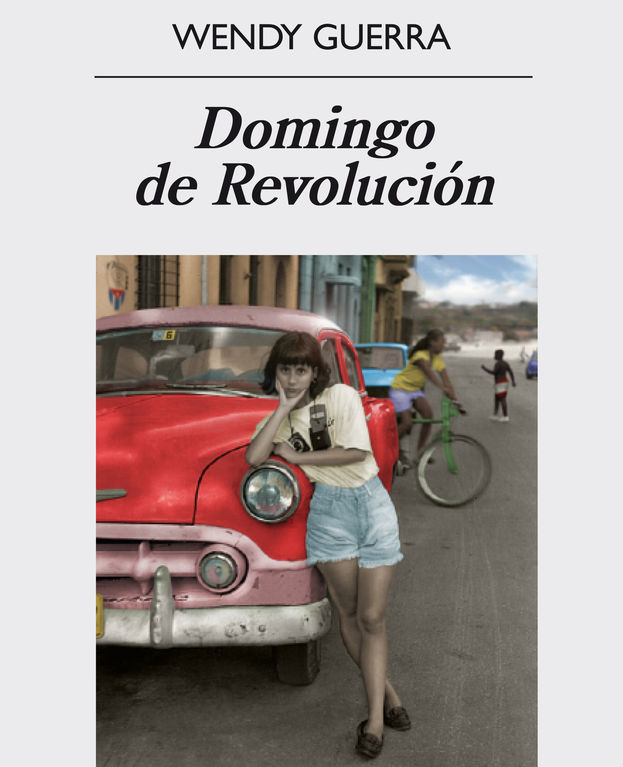
![]() 14ymedio, Zunilda Mata, Havana, 1 April 2016 — With strong autobiographical overtones, Wendy Guerra’s latest book tells the story of Cleo, a young poet and storyteller residing in Havana living under the supervision of the publishing authorities and State Security. With a work published abroad, the protagonist of Revolution Sunday (Anagram, 2016) is charged by the Ministry of Culture with being an author built by “the enemy” and is under permanent suspicion of being “an invention of the CIA.”
14ymedio, Zunilda Mata, Havana, 1 April 2016 — With strong autobiographical overtones, Wendy Guerra’s latest book tells the story of Cleo, a young poet and storyteller residing in Havana living under the supervision of the publishing authorities and State Security. With a work published abroad, the protagonist of Revolution Sunday (Anagram, 2016) is charged by the Ministry of Culture with being an author built by “the enemy” and is under permanent suspicion of being “an invention of the CIA.”
Guerra has commented that the character is inspired by a writer of her mother’s generation, the poet Albis Torres, who lived among microphones and ghosts. Many writers on the island “are going to laugh and cry” as they read this novel, the author of this novel told 14ymedio. Guerra is also the author of Everyone Leaves and I Never Was First Lady. Cleo is a compendium of memories of several generations of silenced artists “in a closed society,” she says.
In the midst of writing the novel, Guerra found herself surprised by the announcement of the reestablishment of relations between Cuba and the United States. The author incorporated some of these events in the book, which she describes as “a historical novel” given the importance the political environment plays in the plot that runs through the story.
The book explores the conflicts generated by distrust and paranoia that run through a society where, for decades, everyone is afraid of everyone. While Cleo is considered among many intellectuals to be an infiltrator from the United States secret services, for others she is a skillful agent of Cuban intelligence, planted to give the idea that there is publishing tolerance in Cuba.
With a work prohibited and ignored in Cuba, Cleo finds success as a storyteller because her books are published and read outside the island. Her work is translated into several languages and she is seen as a chronicler of the failure of the revolutionary process. The volume explores the Cuban tragedy with sensitivity and humor, confirming Wendy Guerra as an indispensable writer in the panorama of contemporary Cuban literature.
